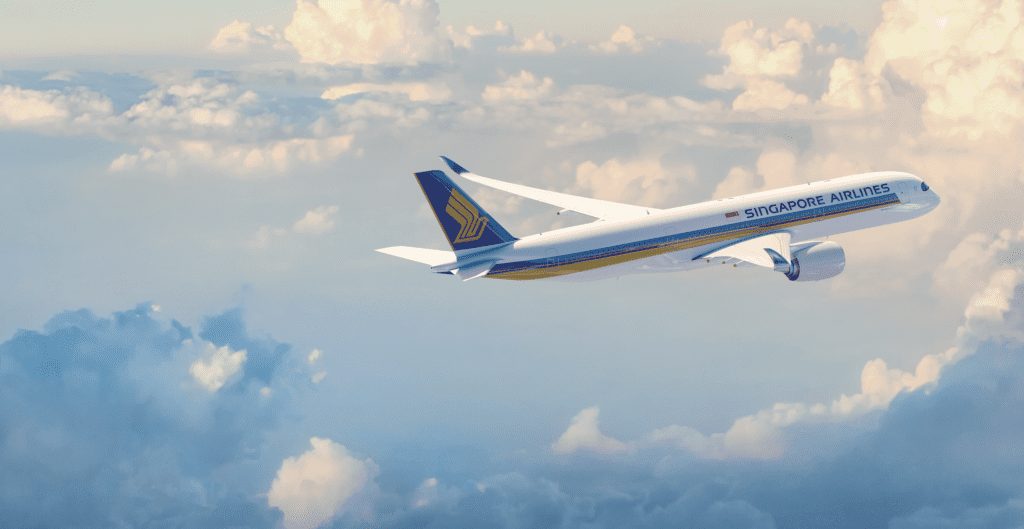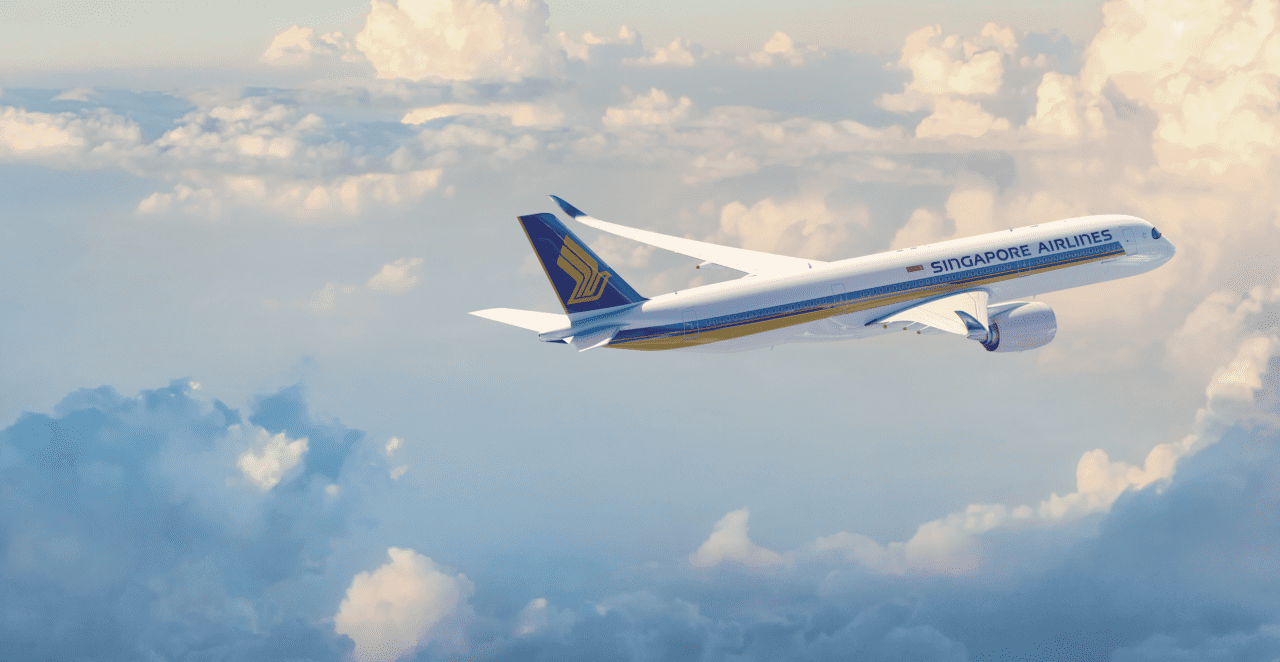Rolls-Royce, Safran, Airbus, and Singapore Airlines Sign Declaration to Advance Use of Sustainable Aviation Fuel


The Global SAF Declaration was signed last week by Singapore Airlines, Rolls-Royce, Airbus, and Safran, indicating their commitment to the advancement of sustainable aviation fuel. (Photo: Singapore Airlines)
At the Singapore Airshow last week, four entities signed the Global SAF Declaration in a demonstration of their commitment to promoting and accelerating sustainable aviation fuel (SAF) production and consumption. Singapore Airlines was the first airline to join in the declaration; it is also open to all aviation and aerospace organizations. Rolls-Royce, Safran, and Airbus are the other signing parties. For the aviation industry, increasing SAF utilization is a key component in working towards decarbonization.
Antony Szafranek, SVP Americas for Rolls-Royce, emphasized his company’s role in the pursuit of net-zero emissions by 2050 and the importance of SAF in reaching that target. ”The most powerful way of getting to net-zero,” he told Avionics International, “is playing our role to help facilitate and stimulate demand, help remove barriers that we can control, and encourage dialogue across the value chain,” as well as ensuring the availability of competitively-priced SAF. Rolls-Royce is dedicated to ensuring that all new products will be compatible with net-zero operation by 2030, with the longer-term goal of compatibility for all products by 2050.
SAF has the potential to contribute roughly 65% of the necessary reductions in emissions for the global aviation industry to achieve net-zero by 2050, according to the International Air Transport Association. Currently, however, aircraft are certified to operate on no more than 50% SAF combined with conventional jet fuel. Rolls-Royce announced in October of last year that all of its Trent engines would be compatible with 100% SAF by the year 2023. It has completed test flights with its Trent XWB and Pearl engines, and the team partnered with Boeing and World Energy to carry out a test flight of the 747 Flying Testbed aircraft using a Trent 1000 engine fueled by 100% SAF, along with three engines using conventional jet fuel. Szafranek remarked that they are in the process of testing their engines in order to ensure that aircraft performance is maintained while running on SAF.
“There is a place for gas turbine technology, especially for longer-range missions,” Szafranek explained. “Our latest engine is 15% more efficient than earlier generations. That continuous improvement has always been in our DNA.” He added that their latest technology demonstrator will likely deliver efficiency improvements in the range of 25%. The UltraFan engine, he said, is due to be completed with its building phase and undergoing ground testing by this summer. “We’re anticipating a requirement for the technology in [the Ultra Fan] around the 2030s; the UltraFan entering into service will depend on aircraft manufacturers’ requirements.” The team at Rolls-Royce will take notes on the research and development that goes into the UltraFan engine and roll back improvements into the existing generations of engines.
Szafranek envisions a future for gas turbine technology up to 2050, and integrating SAF will be a key part of that journey. He expects that other airlines will join in signing the Global SAF Declaration in the coming weeks and months, and the team at Rolls-Royce is engaged in dialogues with multiple airlines to share strategies for achieving decarbonization.
Eric Dalbiès—Chief Technology Officer of Safran, commented on the company’s participation in the press release, saying, “[We are] fully committed to deliver disruptive innovation for decarbonisation, with ultra-efficient engines and 100 % sustainable aviation fuels capability, in order to enable the ambitious energy transition required in the aviation sector.”
Chief Technical Officer of Airbus, Sabine Klauke, also remarked in the press release that Airbus aircraft will be certified to fly with 100% SAF by 2030. “The challenge is to further increase and encourage the uptake of SAF globally as well as incentives and long-term policies that encourage SAF use. The Declaration will support exactly that, and Airbus is inviting further players in the industry to join the initiative.”
The full Global SAF Declaration concludes by saying, “Each of us is committed to continue working with existing industry bodies (e.g., ATAG, ICAO and CORSIA, etc.), existing SAF initiatives (e.g., Fuelling Flight Project, Business Aviation Coalition for SAF, WEF Clean Skies for Tomorrow Coalition, etc.) and with governmental initiatives (e.g., the EU Green New Deal, ReFuelEU Aviation, etc.) to make the widespread and rapid adoption of SAFs a reality.”
The post Rolls-Royce, Safran, Airbus, and Singapore Airlines Sign Declaration to Advance Use of Sustainable Aviation Fuel appeared first on Aviation Today.
—————
Boost Internet Speed–
Free Business Hosting–
Free Email Account–
Dropcatch–
Free Secure Email–
Secure Email–
Cheap VOIP Calls–
Free Hosting–
Boost Inflight Wifi–
Premium Domains–
Free Domains






